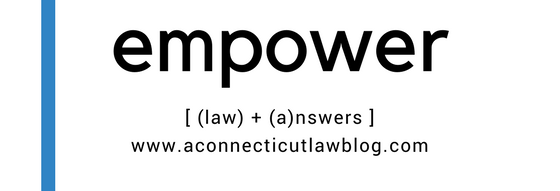by Josh Michtom
I should start by saying that I have nothing but the utmost respect for the Judicial Branch in general, and the Appellate Court in particular. On the occasions when I have had to file things at the Appellate Court clerk’s office, everyone has been friendly and helpful in explaining the ways in which my filings invariably fail to comply with Practice Book formatting regulations. They never laugh or scorn (“Half-inch left margins? GET OUT!”). They even have a form with check boxes that they fill out and give to you to tell you how you screwed up.

But the existence of that form is telling, and what it tells you is this: if you are filing anything with the Appellate Court, you will screw up. Few things are as universally agreed upon among lawyers in this state as the difficulty and drudgery involved in filing properly with the Appellate Court.
And for solo practitioners, especially ones who, like me, don’t handle a lot of appeals in their practice and don’t have the benefit of an experienced paralegal, the cost of printing fifteen bound copies of briefs – and re-printing them after screwing them up – coupled with the time needed to check and re-check the many rules in the Practice Book, can be aversive if not prohibitive.
Case in point: Monday was the deadline for me to file briefs at the Appellate Court in a juvenile delinquency case where I represented the child when I worked in the public defender’s office at Hartford Juvenile Court. (I was laid off when the first SEBAC deal was rejected, but I kept the appeal on contract.) My brief was all written and formatted, after much careful review of Sections 67-1 through -11 of the Practice Book, and I went to Kinko’s to get my 18 copies (original and 15 copies for the court, one for opposing counsel, and one for the trial judge). After binding, heavy stock blue cover sheets, and everything else, it cost me about $100 for a 20-page brief with a short appendix. It was barely 10:30 in the morning and I was ready to go.
Well, not quite. You see, I read the Practice Book section that required that all print be only in Arial or Univers, and exclusively in 12-point, but I failed to consider the fact that the footnotes should, therefore, also be in 12-point. This was, I should be quite clear, MY FAULT.
Lawyers are trained to rely, first and foremost, on the precise and obvious meaning of words, and I should have done that. But somehow, I just assumed that 12-point font in the body meant 10-point font in the notes – I mean, they’re footnotes! They’re supposed to be smaller so you can ignore them more easily, right? No. Wrong. 12-point means 12-point, and the clerk politely sent me packing, eyes downcast as I lugged my now useless box of errant briefs back to the car.
Of course, I recovered. Several hours and another $100 later, I was back, the briefs were filed, and justice marched happily on. But I was left asking, why should it work this way? I have no objection to the highly specific formatting requirements and the clerks’ rigid enforcement of them. It is surely better to apply the rules strictly and uniformly than to face a flurry of equal protection claims from litigants who feel that the rules were bent for others and not for them.
And I suppose there’s nothing wrong with requiring 15 hard copies. Plenty of people still like to do their heavy reading on paper, and it seems wise enough to place the burden of printing and collating on litigants, the vast majority of whom can probably afford it better than the court can. (It does occur to me, though, that it wouldn’t take too many instances of $100 blown on botched formatting before you could raise enough money to buy at least 15 Kindles for the Appellate Court.)
But here’s what I don’t get: why can’t we file one draft electronically for approval, ahead of time? The clerks could review it just like they do in person, and maybe faster, since there is probably software that could detect obvious nonconformities like my 10-point footnotes immediately. The litigants could correct errors quickly, without a trip to the clerk’s office and without all that needless printing. And when the litigants showed up in person, the clerks could just stamp the briefs and be done.
I realize this isn’t a burning, big-time problem. (A friend on Twitter responded to my grousing with the hashtag #firstworldlawyerproblems.) As I’ve said, most litigants have enough money at stake that an extra $100 in printing isn’t worth a second thought, or they retain firms with paralegals who have Practice Book Section 67-1 tattooed on their abdomens, Tupac style.
But not all of them. Plenty of small businesses and individuals retain small or solo firms where the lawyers do their own filing. For homeowners in bankruptcy and foreclosure matters, the initial filing fee may have been painful enough, without the addition of extra printing costs.
Or look at my client, whose filing fee was waived due to indigency: he is a fifteen-year-old boy currently enjoying a non-voluntary bout of state hospitality at the Connecticut Juvenile Training School. His appeal concerns whether children convicted of delinquencies and sent to the Training School should get credit off their sentences for time served – an important issue (I think) that affects a lot of kids.
And surely he isn’t the only poor, underresourced litigant to present what might be an important and law-changing case to the appellate system. Isn’t that reason enough to make the process a little less onerous and costly?
___________
Josh Michtom is a child protection lawyer and Spanish translator based in West Hartford.
